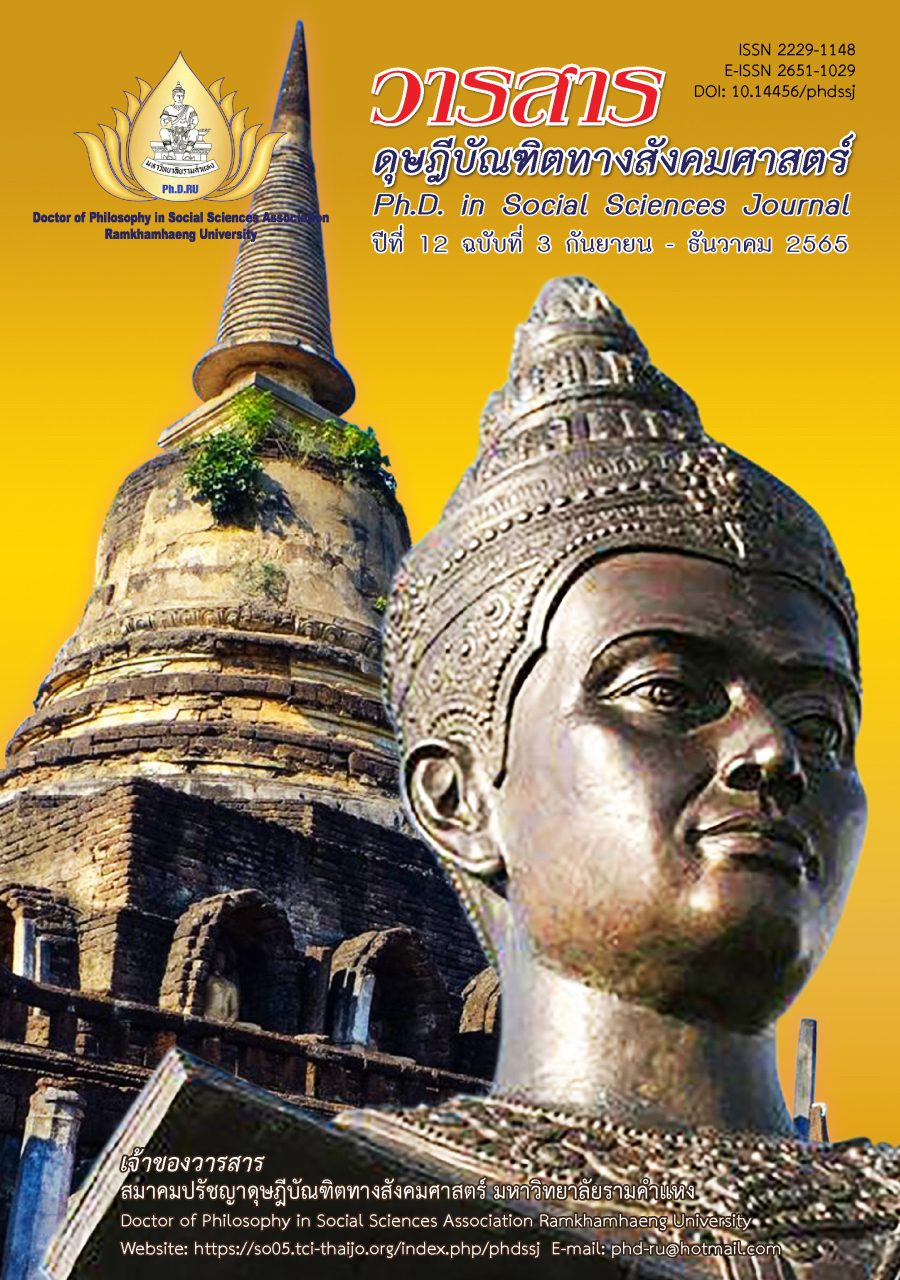Democracy in the Public Deliberation Process of Community Organization Councils in the Lower Southern Region
Main Article Content
Abstract
This research article aim to study: the researcher examines (1) the patterns of the public deliberation process of community organization councils in the lower southern region with the potential to mobilize problems and foster development in various issues; and investigates (2) the characteristics of democracy in the public deliberation process under study to strengthen communities in the lower southern region. The qualitative research approach was used by conducting interviews, observing, studying related documents, and inductive analysis.
Finding are follows: (1) The patterns of the public deliberation process of community organization councils exhibited the potential for mobilizing problems and fostering development in various issues. Community organization councils are forums for deliberation by coordinating major organs of the community. They are the driving force with power from cooperation. Working groups in specific areas are set up to enhance the ability of community organization councils to mobilize their missions more widely and more efficiently. The work is in a network system. It is a forum for deliberation connecting the collaboration of community organs with external network partners. And (2) The characteristics of democracy in the public deliberation process of community organization councils that enhance community strength are in consonance with the theory of deliberative democracy. The major part of the deliberation process is an argument with public reasoning. Contemplation is employed with discretion. Reasons and arguments are weighed thoroughly based on evidence and facts. The outcome is agreement or consensus.
Article Details

This work is licensed under a Creative Commons Attribution-NonCommercial-NoDerivatives 4.0 International License.
Academic articles, research articles, and book reviews in the Ph.D. in Social Sciences Journal are author’s opinions, and not the publisher’s, and is not the responsibility of the Ph.D. in Social Sciences Journal Philosophy Association, Ramkhamhaeng University. (In the case that research is done on human, the researcher has to be trained in Ethics for Doing Research on Human Training and has to produce the evidence of the training).
References
Aowsakul, N. (2015). The democratic process in community organization councils and civic networks in the central region. Doctoral dissertation of Doctor of Philosophy, Ramkhamhaeng University. [In Thai]
Bureekul, T. (2015). Thailand’s future and ideal politics. King Prajadhipok’s Institute. [In Thai]
Cohen, J. (1997). Deliberation and democratic legitimacy. In J. Bohman & W. Rehg (Eds.), Deliberative democracy: Essays of reason and politics (pp. 67-92). The MIT Press.
Cohen, J. (1998). Democracy and liberty. In J. Elster (Ed.), Deliberative democracy (pp. 185-231). Cambridge University Press.
Community Organizations Development Institute (Public Organization). (2018). Quality development of the Tambon Community Organization Council. Author. [In Thai]
Dewey, J. (1916). Democracy and education: An introduction to the philosophy of education. Macmillan.
Fischer, F. (2004). Professional expertise in a deliberative democracy: Facilitating participatory inquiry. The Good Society, 13(1), 21-27.
Fishkin, J. S. (2009). When the people speak: Deliberative democracy and public consultation. Oxford University Press.
Gutmann, A., & Thompson, D. (2000). Why deliberative democracy is different. Social Philosophy and Polity, 17(1), 161-180.
Gutmann, A., & Thompson, D. (2004). Why deliberative democracy?. Princeton University Press.
Habermas, J. (1989). The structural transformation and the public sphere: An inquiry into a category of bourgeois society. The MIT Press.
Jumnianpol, S. (2009). Politics of deliberative democracy in development process: The case study of water management in Rayong province. Doctoral dissertation of Doctor of Philosophy in Political Science, Chulalongkorn University. [In Thai]
Leelerdpan, V., & Rajbhandaraks, S. (2018). The building of a political voter base for the democrat party in the south. Suan Dusit Graduate School University Journal, 14(1), 43-54. [In Thai]
Manin, B., Stein, E., & Mansbridge, J. (1987). On Legitimacy and Political Deliberation. Political Theory, 15(3), 338-368.
Nimpanich, J., & Wannapak, S. (2019). People’s politics: The way for Thai politics. King Prajadhipok’s Institute. [In Thai]
Roberts, N. (1997). Public deliberation: An alternative approach to crafting policy and setting direction. Public Administration Review, 57(2), 124-132.
Smith, G., & Wales, C. (2000). Citizens’ juries and deliberative democracy. Political Studies, 48(1), 51-65.
Tanchai, W. (2001). Political expression behavior of people in southern region: A study of Songkhla province. King Prajadhipok’s Institute. [In Thai]
Valadez, J. M. (2010). Deliberative democracy, political legitimacy and self-determination in multicultural societies. Westview.
Weeks, E. C. (2000). The practice of deliberative democracy: Results from four large-scale trials. Public Administration Review, 60(4), 360-372.
Wongyannava, T. (2006). Conceptual base of democracy deliberation. King Prajadhipok’s Institute Journal, 4(3), 77-90. [In Thai]


